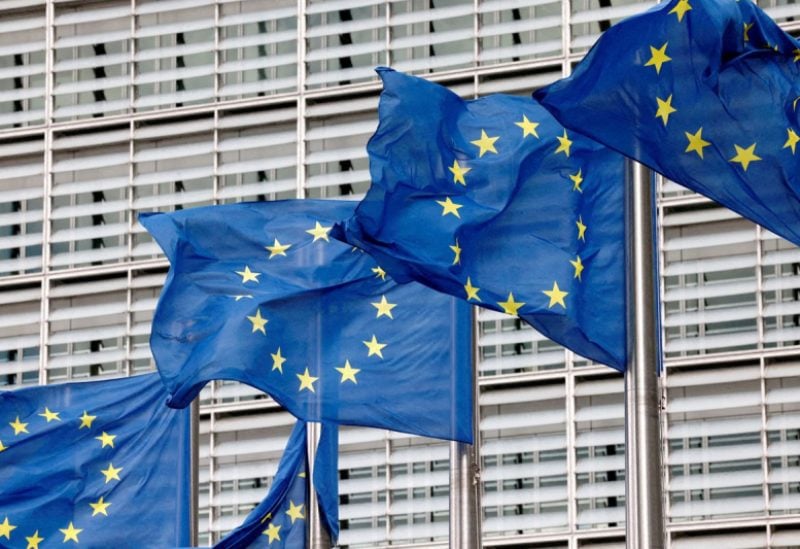
European Union flags flutter outside the EU Commission headquarters in Brussels, Belgium, September 28, 2022. REUTERS/Yves Herman/File Photo
EU negotiators have agreed to restructure the bloc’s carbon market, which is its primary instrument for combating global warming, according to the Czech EU presidency and the European Council.
The agreement, according to the Czech Republic’s environment minister Marian Jurecka, “would allow us to accomplish climate objectives within the key sectors of the economy while ensuring that the most disadvantaged citizens and micro-enterprises are adequately supported in the climate transition.”
At stake was the EU’s ability to contribute to global efforts to fight climate change, and achieve its target to cut net greenhouse gas emissions by 55% by 2030 compared with 1990 levels.
Meeting that goal will require the EU carbon market to be reformed to cut emissions faster, which it does by requiring around 10,000 power plants and factories to buy CO2 permits when they pollute.
Negotiators were at odds over how quickly to end the free CO2 permits the EU gives industries to protect them from foreign competition. Those permits will be wound down as the EU phases in a carbon border tariff designed to prevent domestic firms from being undercut by overseas competitors.
After 30 hour of talks that started on Friday, negotiators agreed to raise the overall target to cut emissions in the sectors covered by the European Emissions Trading System to 62% by 2030, the European Council, grouping the bloc’s member states, said in a statement.
Negotiators also decided to rebase “the overall emissions ceiling over two years of 90 and 27 million allowances respectively, and increase the annual reduction rate of the cap by 4,3% per year from 2024 to 2027 and 4,4 from 2028 to 2030,” the statement added.
A Social Climate Fund is to be established to support vulnerable households, micro-enterprises and transport users cope with the price impacts of an emissions trading system for buildings, road transport and fuels for additional sectors, according to the statement.